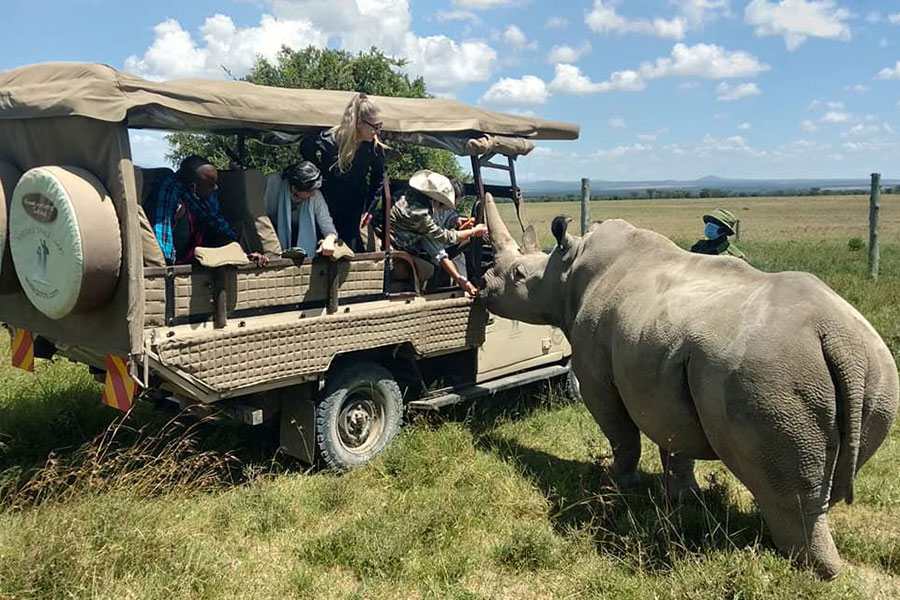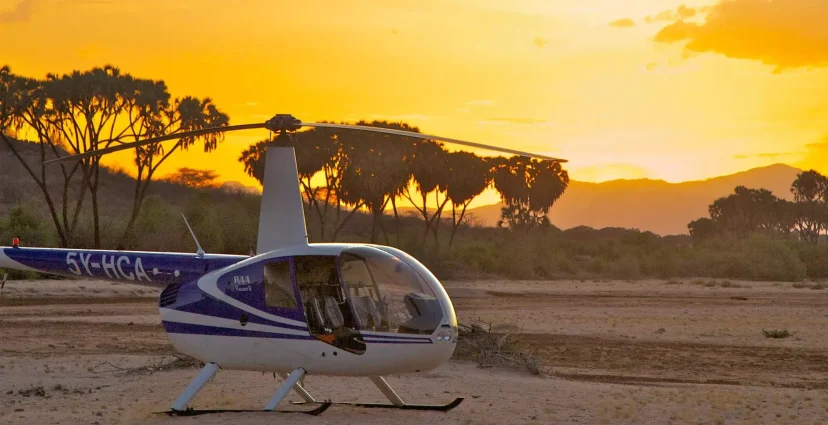Top Tips On Picking Mombasa Watamu Snorkeling
What Precautions For Health Should I Be Aware When I Travel To Mombasa In Kenya?If you plan to visit Mombasa, Kenya, taking appropriate health precautions is crucial to ensure a secure and enjoyable trip. Here are some important health considerations.
1. Vaccinations
Routine Vaccinations: Ensure that you are up-to-date on routine vaccines such as measles-mumps-rubella (MMR), diphtheria-tetanus-pertussis, varicella (chickenpox), polio, and your yearly flu shot.
Hepatitis A. It is recommended for travelers who may consume beverages and foods that are contaminated.
Hepatitis B : Travelers who are exposed to blood and bodily fluids due to sexual contact, medical procedures or the use of drugs must be informed.
Typhoid : This is crucial for people staying with family members or close friends, travelling in small towns or rural areas, and also for foodies who like to experiment.
Yellow Fever - A vaccination certificate is required for travelers who arrive from countries which are at risk of yellow Fever transmission. Find out the most current guidelines.
Rabies: It's a possibility when you travel outside and are exposed to animal bites. This includes people who go hiking, camping and caving, among others.
2. Malaria Prevention
The malaria in Mombasa is very prevalent. Consult your healthcare provider for the best antimalarial treatment for you.
Beware of Mosquito Bites Utilize insect repellents that contain DEET. Wear long-sleeved clothing and long pants during the night and evening. You can sleep with a mosquito net even if you're not in a room that is air-conditioned and properly screened.
3. Food and Water Safety
Drink with caution: Choose boiling or bottled water. Avoid drinking the tap water, ice and drinks that aren't sealed.
Consume only safe and properly cooked food. Avoid eating raw seafood, meat and raw fruits and vegetables that have not been washed. Be cautious when you eat street food. Select trustworthy restaurants instead.
4. Diarrhoea Traveler
Hand sanitizers and soap as well as water are efficient methods to prevent infections. Do not consume any beverage or food that comes from a source you doubt.
Always carry medication, such as Imodium (loperamide), and salts or oral Rehydration. It is recommended to consult with your doctor to find out whether antibiotics are required for severe instances.
5. Sun Protection
Sunscreen: Pick a broad spectrum sunscreen with SPF 30 or higher. Apply sunscreen frequently, and especially after you have been swimming or sweating.
Protective Clothing: Wear hats, sunglasses and light, long-sleeved clothing to minimize the sun's rays.
6. Heat and Hydration
Be sure to avoid dehydration by drinking lots of fluids. Avoid drinking large amounts of alcohol or caffeine, as they can result in dehydration.
Beware of overexertion Stop for breaks, especially during the hottest parts of the day. Look for shade and cool areas to prevent heat exhaustion and heat stroke.
7. Safety in Water Activities
Swimming in Areas Delineated: Make note of the local guidelines and conditions for swimming, as well as any possible dangers, like a strong flow.
Marine Life Awareness: Be aware and avoid dangerous marine life like jellyfish and sea urchins. Wear water shoes if are walking around in areas that are shallow.
8. Care and Insurance. Care and Insurance
Travel Insurance: Ensure that you have adequate travel insurance that includes evacuation and medical emergency situations.
Local Medical Facilities Familiarize your self with the locations of medical facilities that are reputable in Mombasa. Major hotels often offer information on nearby hospitals and doctors.
Medication: Bring an adequate quantity of all prescription medicines you use, as well as copies of your prescriptions.
9. Emergency Contacts
Please contact the Embassy in your country for the contact information for them.
Local Emergency Numbers. Be aware of the emergency number in your area for police (999), firefighters (999) and ambulances (999).
These health precautions will help you reduce your risk so that you can focus on your holiday and enjoy the experience. Check out the top rated mombasa safari tours for site info including kenya safari holiday packages, kenya travel, afri safari, safari excursions, kenya safari holiday, tours safari africa, safari excursions, safaris beach, tour and travel company, safari trips in africa and more.

What Factors Regarding The Weather Should I Be Aware Of When Visiting Mombasa In Kenya?
Understanding the weather patterns in Mombasa is crucial to packing and getting the most out of your holiday. Here are the key factors to consider when planning your trip:
1. Climate Overview
The climate in Mombasa is tropical and humid all throughout the year. The temperatures typically range from 24degC to 32degC.
2. Seasons
Hot and humid season (November through April): During this period, temperatures are high and humidity high. The peak season for tourism is December and January.
Long Rains April-June: The rainy seasons is characterized by heavy rains and thunderstorms. It is possible for roads to get muddy. This is the off-season for tourism.
The coldest time of the year is from June through October during which temperatures and humidity are at their lowest. The weather is usually pleasant and ideal for outdoor activities.
Short Rains (October to November) Short Rains (October - November): These are brief rainshowers that are not as intense. The rains are usually only for a short time, but will be followed by a bit of sunshine.
3. Packing Tips
Lightweight Clothing: Bring lightweight and breathable clothes like cotton and linen to stay cool in the summer heat.
Rain gear: If you are traveling in the rainy season, bring waterproof clothing along with an umbrella, as well as waterproof footwear.
Sun Protection: A high-SPF sunscreen glasses with wide brims, wide-brimmed caps as well as light clothing and covering your skin with light clothes will shield you from strong sunrays.
Wearing a swimsuit is essential for beach days and hotel pools.
4. Weather-specific activity
Beach Time - The ideal time to visit the beach in cooler weather (June to October) is during a time when the sea is calm and the weather good.
The calm and clear water is perfect for snorkeling, diving, and other water sports from November through March.
Wildlife viewing. The cooler seasons (June-October) are also great for wildlife excursions or safaris because temperatures are more bearable.
5. Health-related Considerations
Keep hydrated during the humid, hot climate. Drink plenty of water particularly if you're spending time outdoors.
Health-related illnesses that are related to heat: Be aware of the possibility of heat exhaustion or heat stroke. Wear loose-fitting clothing and avoid vigorous exercise in the heat of summer.
6. Travel Adjustments
Traveling during the rainy season It is important to be prepared for delays in travel when you travel during this period. Some roads could be impassable. Outdoor activities may be limited.
Rainy weather can cause delays to flights. Be aware of your travel schedule and plan contingency plans.
7. Environmental Considerations
Natural Hazards - Know that heavy rain can trigger flooding. Keep informed of local weather forecasts and follow safety recommendations.
Be conscious of tides when making plans for beach activities. They can shift dramatically. Consult tide schedules to ensure safety while beachcombing and swimming.
By understanding these weather considerations it will help you plan your holiday activities, pack appropriately, and stay safe while enjoying the time you spend in Mombasa. View the top airport transfers kenya for site info including safaris beach, african safari africa, safari trips in africa, tour mombasa, cheap kenya safari packages, safari tour, africa in kenya, kenya safari beach, kenya tours, trips to kenya safari and more.

What Environmental Responsibilities Should I Be Aware Of During My Holiday In Mombasa Kenya?
It is crucial to be responsible for the environment while on vacation in Mombasa. This will ensure the beauty and diversity of the region. Here are some important environmental responsibilities that you should be aware of:
1. Sustainable Accommodation
Eco-friendly Hotels: Choose hotels that are committed to sustainability. Look for eco-labels and certificates, for example Ecotourism Kenya.
Resource Conservation: Join in hotel initiatives aimed at conserving electricity and water. Reuse linens, towels and towels. Also, turn off the lights and air conditioner when not needed.
2. Responsible Wildlife Viewing
Be respectful of wildlife. Keep your distance to animals so as not to disrupt them. Your guide on your tour will give you instructions.
Beware of feeding animals: Feeding wildlife can alter their natural diet and behaviour.
Do not litter in wildlife reserves. Bring all of your garbage along with you, and then dispose of it properly.
3. Plastic Reduction
Reduce the use of plastics by using single-use. Carry a reusable water bottle or shopping bag as well as tools.
Encourage local initiatives locally. Participate in beach clean-ups at your local beaches or other organizations working to reduce plastic contamination.
4. Water Conservation
Mombasa is a water-scarce city. Cut down your showers, and turn the taps off when they are not in use.
Biodegradable products: Choose organic or biodegradable toiletries to reduce water contamination.
5. Energy Conservation
Reduce energy consumption by limiting the use or air cooling. Unplug devices when they are not in usage.
Encourage Renewable Energy Choose hotels and tour operators that make use of renewable energy sources.
6. Sustainable Transportation
Public Transport: If you can make use of public transportation such as matatus or buses to decrease the carbon footprint of your feet.
Eco-friendly Options: Consider renting bikes or walking short distances. Certain areas offer eco-friendly taxis.
7. Supporting Local Economic Development
Buy locally: To support the local community, purchase souvenirs, food items, and crafts from local vendors.
Fair Trade: Buy fair-trade products that are certified to ensure that local farmers are fairly paid.
8. Environmental Education
Learn and share: Learn on the local environment and conservation initiatives. Discuss with your friends your findings to raise awareness.
Respect Local Cultural Practices Learn and be respectful of local customs in the area of conservation of the environment.
9. Marine Conservation
Responsible Snorkeling and Diving: Avoid touching or stepping directly on coral reefs. Use sunscreen that is safe for reefs to safeguard marine life.
Avoid dumping rubbish into the ocean. Join or help support programs to protect marine habitats.
10. Ethical Souvenirs
Avoid Wildlife Products. Do not purchase products that are made from endangered species like tortoiseshell and ivory.
Sustainable Materials: Select products made of recycled or sustainable materials.
11. Take part in Conservation Activities
Volunteer: You can sign up to help with local conservation efforts, or tourism-related initiatives.
Support local NGOs. Donate cash to NGOs or conservation organizations working to preserve and protect the environment.
12. Responsible Travel practices
Small group sizes are recommended to minimize the environmental impact.
Eco-Tours: Select tour operators who are environmentally conscious and committed to sustainability.
When you keep these responsibilities to the environment in mind, you'll be able to aid in the conservation of Mombasa's natural resources. You can also ensure that the beauty and biodiversity of the area are preserved for future generations. Follow the most popular mombasa old town for site tips including africa safaris and tours, african safari kenya, tour and travel company, luxurious african safari, kenya safari and beach packages, africa tours and safaris, kenya tour operator, trips to kenya, africa in kenya, tours & safaris and more.
